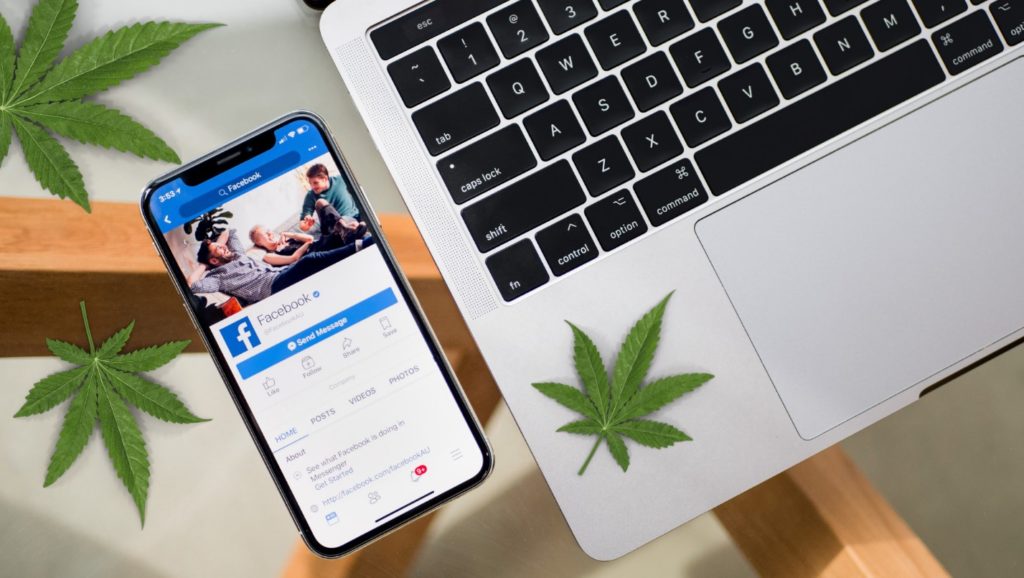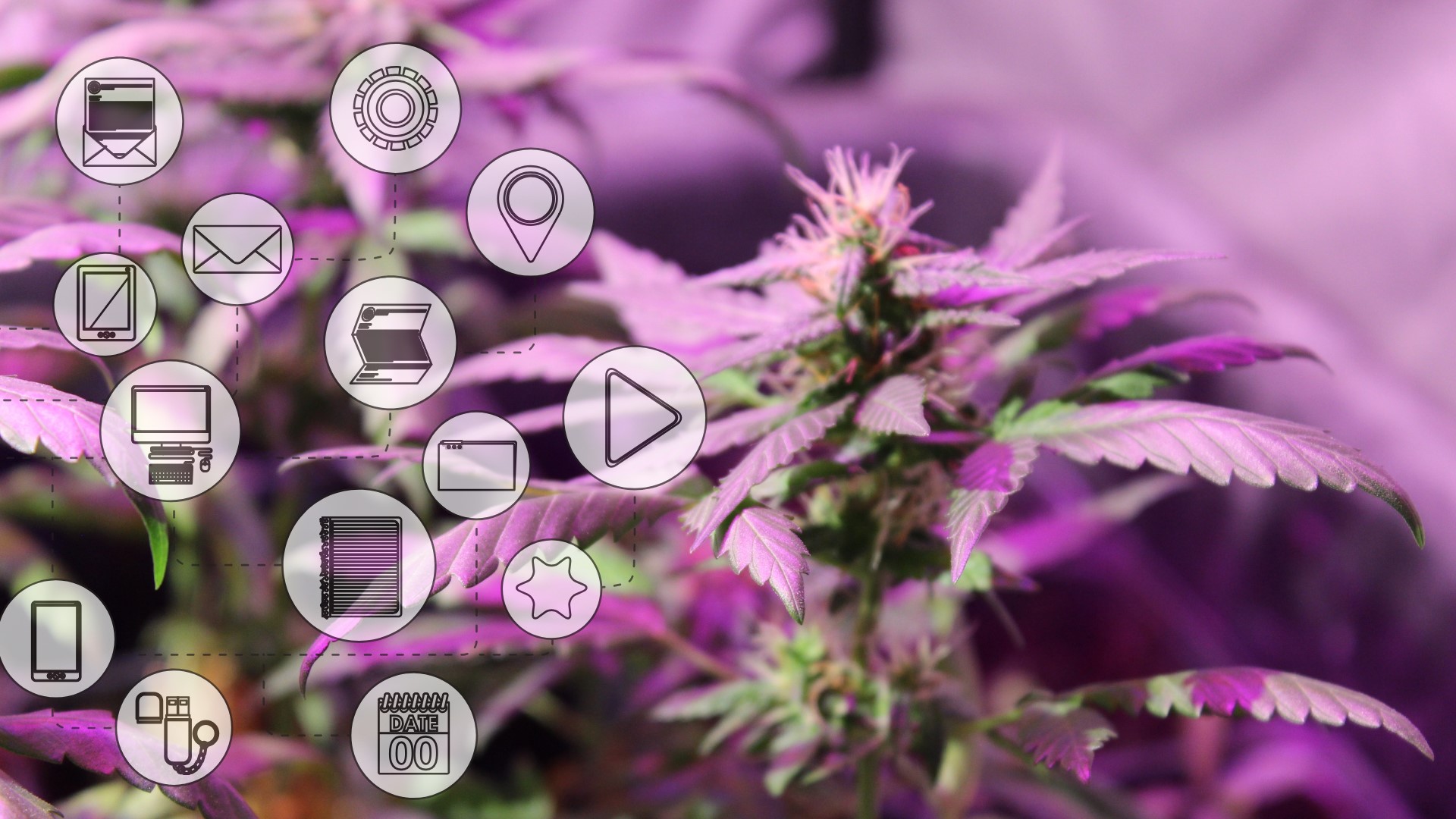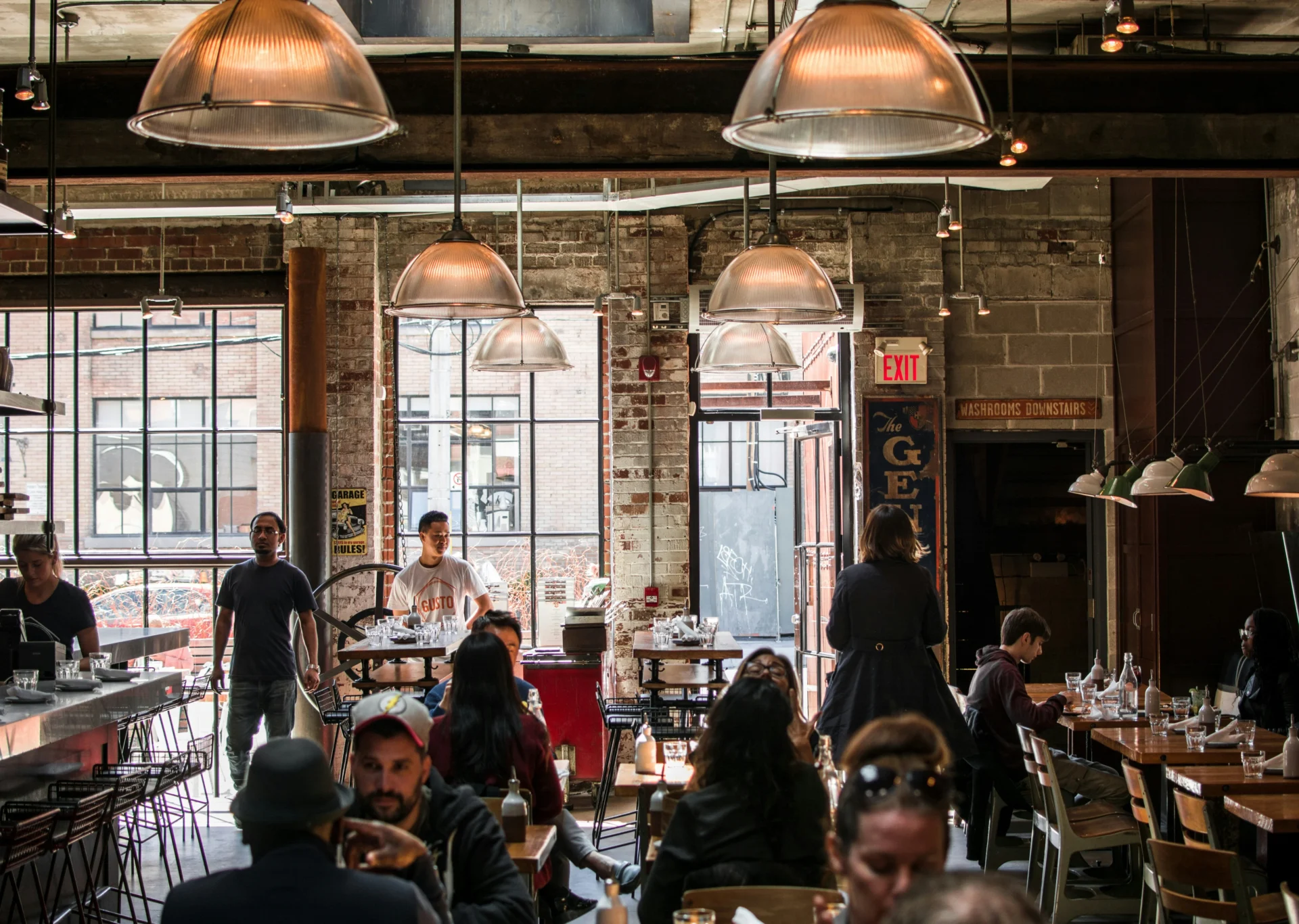Cannabis: one of the fastest-growing industries in recent years. As it stands, the number of states that have legalized recreational cannabis now outnumbers the number of states that it’s still illegal. Unlike traditional health and wellness brands, cannabis brands face difficulties when it comes to advertising.
Cannabis companies are now turning to influencers to grow their business and avoid advertising bans. Many major platforms like Facebook and Google, who dominate the online advertising space, have strict policies in regard to cannabis-related posts. Even Instagram and Snapchat don’t take any advertisements for cannabis products. There is always a loophole, however. Companies are expanding to states beyond the highly (pun intended) weed-friendly ones. Cannabis businesses aren’t stopping themselves from expanding their audience reach due to these platform ad bans and the way they’re going about it is through cannabis influencers.
Platform Involvement

While there are many bans on cannabis-related advertisements, these major platforms aren’t even exactly clear about what kind of content they will allow. Facebook, for example, says, “Ads must not promote the sale or use of illegal, prescription, or recreational drugs.” Yet at the same time, they will allow advertisements with educational and advocacy content. Even though the cannabis business is a billion-dollar industry, the promotion of any kind is still on the list of Facebook’s prohibited content. This can obviously cause frustration for business owners because it’s that much less exposure they can get for their brand.
The cannabis community has complained about Instagram’s policies as well, saying how they need to crack down on what is permitted. Instagram has yet to even outline specific rules to enlighten influencers and brands on what is and isn’t acceptable. This makes it that much harder to not only come up with content but to generate brand exposure as a whole.
“Instagram is either applying its rules arbitrarily or is basing its decision on user reports, which means anyone could report their competitor’s account to have it shut down,” said David Brown, the Communications Director of Lift Cannabis. Lift, news and reviews website has had its account deleted, even though the company is based in Canada where medical marijuana is legalized at a national level.
Kiva Confections, a cannabis brand that makes THC-infused chocolates and candies, doesn’t have good luck in the industry either. Since 2015, their Instagram account has been shut down eight times. Supposedly, their posts were a little too promotional which then violates the Terms of Service for Instagram. Their first account, @kivaconfections, had just over 60,000 followers. Their current account, @madebykiva, has just over 8,000 followers. Kiva Confections isn’t alone in this as many other companies are being affected by these advertising bans.
In the Eyes of the Influencer

This is where influencer marketing comes into play. Some companies are paying influencers to spread the word about their cannabis products and the use of influencers in this industry is only rising. While it’s great for these companies to avoid bans by utilizing influencers, it also can be a struggle to find the right person. Many influencers are scared of potential legal consequences if they are promoting the use of cannabis, being that it’s only legal in a handful of states. Along with that, they also don’t want their respective platform to shut down their page. So, in that sense, influencers do have the right to be a little cautious before agreeing to work with these cannabis companies.
Bess Byers, a cannabis influencer on Instagram, had her account disabled. After appeals to restore her account, an Instagram spokesperson stated her account was taken down because it violated the platform’s marijuana policy. Instagram does not allow any content that promotes the sale of cannabis, regardless of state or country. In her situation, it just made her even more determined to promote transparency. Byers wants to actually petition for Instagram to change its Terms of Service, while other influencers might have given up and found the cannabis industry too hazardous.
Even though cannabis is gaining more social acceptability, influencers and companies still have to be careful about what they post. This industry is notably quite risky and if so much as the wording on a post is wrong, the algorithms will pick up on it and the post will be deleted. Many businesses are getting their advertisements blocked as well. Cannabis influencer marketing is helping businesses get around this problem by using individual promotions.
Cannabis Marketing in Action
“[Platforms] are so vague about what we can do,” said Olivia Mannix, CEO, and founder of cannabis marketing agency Cannabrand. Cannabrand is the world’s first full-service marketing agency dedicated to all thing’s cannabis. They have a network of 1,000 influencers, some of them having millions of followers and their influencers are more than willing to post about THC and CDG products.
Cannabis influencers can do anything from straightforward reviews to funny videos as a way to endorse whatever product they are promoting. Some pages focus on recreational use of cannabis, some are more on the educational side, and others might just be for fun. At the end of the day though, they all serve the same purpose: to get more people interested in the brand and eager to purchase products.
Influencer marketing works because more than anything else, people trust personal reviews. A recent Nielsen study found that 92% of consumers trust word-of-mouth recommendations above all over forms of advertising. To be successful, these companies don’t need to have Snoop Dogg endorsing their business on all his social media accounts. That’s quite expensive, and a little far-fetched. The most important thing is to find a cannabis influencer that aligns with the brand. Someone who genuinely uses cannabis products and also has an engaged audience.
With cannabis influencers, it helps companies steer away from restrictions while helping to create a relationship with their customers. When customers see real people using the products it makes them want to test it out, too. Influencers are storytellers and they help to convey your brand story in a way that can really resonate with your audience and potential customers, leading to the end goal: an increase in followers, engagement, and overall sales.
Interested in learning more about influencer marketing? Please contact fishbat for details.


